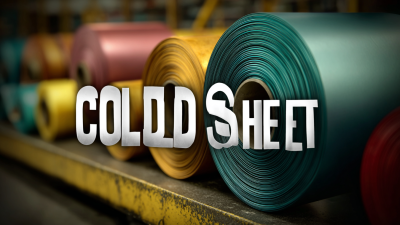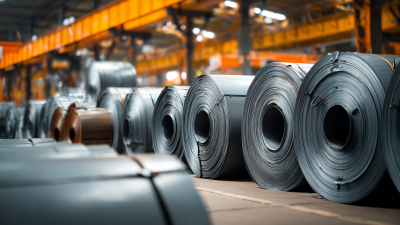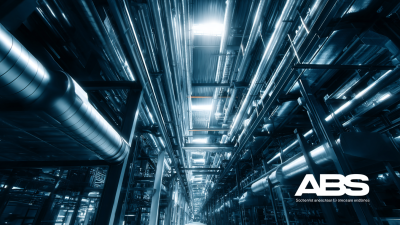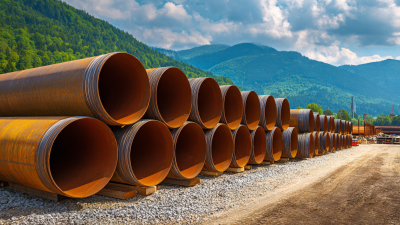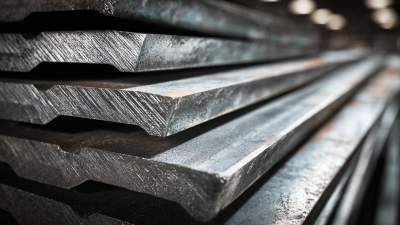In today's competitive manufacturing landscape, the selection of materials is critical to operational efficiency and product quality. One of the standout choices is Carbon Steel Coil, renowned for its versatility and strength. According to a report by MarketsandMarkets, the global carbon steel market is expected to reach a staggering $609.5 billion by 2025, driven by its extensive applications in automotive, construction, and consumer goods. The exceptional properties of Carbon Steel Coil, including durability, formability, and cost-effectiveness, make it an indispensable asset for manufacturers aiming to enhance production processes while minimizing costs. As industries strive for innovation and sustainability, understanding the key benefits of Carbon Steel Coil becomes paramount for decision-makers seeking top strategies to leverage this material effectively in modern manufacturing.

The use of carbon steel coil in modern manufacturing has gained significant traction due to its ability to substantially reduce production costs. According to a report published by the World Steel Association, carbon steel is among the most widely used materials in manufacturing, accounting for over 50% of total steel production globally. This high availability leads to lower material costs, which can translate into overall savings for manufacturers employing carbon steel coils in their operations.
Moreover, carbon steel coils offer superior machinability and weldability, making them an efficient choice for various applications. A study by Market Research Future emphasizes that the efficient processing of carbon steel can reduce labor and energy costs by up to 15%. This not only accelerates production times but also minimizes waste, allowing companies to allocate resources more effectively. As industries increasingly focus on optimizing their manufacturing processes, the advantages of using carbon steel coil become clear in the pursuit of cost-effective solutions.
Carbon steel coil is rapidly becoming the material of choice in modern manufacturing industries due to its exceptional strength and durability. One of the primary advantages of carbon steel coil is its ability to withstand extreme stress and pressure, making it ideal for applications that require tough and resilient materials. The inherent toughness of carbon steel allows manufacturers to produce components that not only perform well under heavy loads but also have a longer lifespan, resulting in reduced maintenance costs and increased efficiency over time.
In an era where manufacturers are constantly seeking ways to improve product quality and reduce costs, carbon steel coil delivers on both fronts. Its high tensile strength means that components can be produced lighter without sacrificing performance, leading to more energy-efficient operations and reduced material waste. As industries continue to evolve and push for innovations, the utilization of carbon steel coil stands out as a strategic choice that enhances durability and reliability, assuring manufacturers of consistent quality in their end products.

Carbon steel has emerged as a sustainable choice in modern manufacturing industries, aligning with the pressing need for eco-friendly practices. As decarbonization takes center stage, the steel industry is witnessing a transformational shift towards green steel production. This approach significantly reduces greenhouse gas emissions, with reports highlighting that adopting hydrogen-based solutions can reduce emissions by up to 95%. Moreover, Industry 4.0 technologies, such as artificial intelligence and the Industrial Internet of Things, pave the way for improved efficiency and lower environmental impact in manufacturing.
Tip: When selecting materials for your production processes, consider carbon steel's lifecycle benefits. It not only offers good economic performance but also showcases a lower carbon footprint compared to traditional steelmaking methods.
The growing demand for sustainable materials, especially in countries like India, emphasizes the urgency for greener alternatives. With climate goals driving the construction and automotive sectors, carbon steel’s versatility and recyclability make it a prime candidate for future-focused industries. Emerging studies also suggest innovative processes, like green hydrogen-based steel production, could revolutionize supply chains, promoting economic growth while addressing environmental concerns.
Tip: Stay informed on the latest technological advancements in sustainable materials; integrating these can enhance your manufacturing practices and comply with evolving regulations.
Carbon steel coil is increasingly becoming a favorite in modern manufacturing due to its remarkable versatility across various industries. One of the most significant applications can be found in the automotive sector, where carbon steel coils are used to produce essential components such as chassis, body panels, and structural parts. Their mechanical properties allow manufacturers to create lightweight yet durable elements that contribute to vehicle efficiency and safety.

In the construction industry, carbon steel coils play a crucial role as well. They are widely employed in the fabrication of beams, columns, and other structural components, offering excellent strength-to-weight ratios. This versatility extends to appliances and machinery, where carbon steel is a key material in producing tools, frames, and housings. Its adaptability to different industrial requirements showcases the benefits of carbon steel coil, allowing manufacturers to achieve high performance while optimizing costs and production efficiency.
Carbon steel coil has emerged as a pivotal material in modern manufacturing, particularly for its role in improving process efficiency across various industries. The uniformity and consistency of carbon steel coils allow for seamless integration into automated production lines, significantly reducing cycle times. With properties that enhance machinability and weldability, these coils facilitate smoother operations, minimizing the need for rework or repairs due to material flaws. The predictable performance of carbon steel ensures manufacturers can streamline their processes while maintaining high quality and productivity.
Moreover, the adaptability of carbon steel in various forms, including sheets and strips, enables manufacturers to optimize their resource usage. With better material yield and reduced waste, companies can align their production logistics with sustainability goals. This further drives down costs and supports the use of just-in-time manufacturing practices, where timely production items are vital for market responsiveness. In a landscape that demands speed and efficiency, carbon steel coils stand out as a solution that not only supports operational excellence but also enhances the overall competitiveness of manufacturing sectors.
